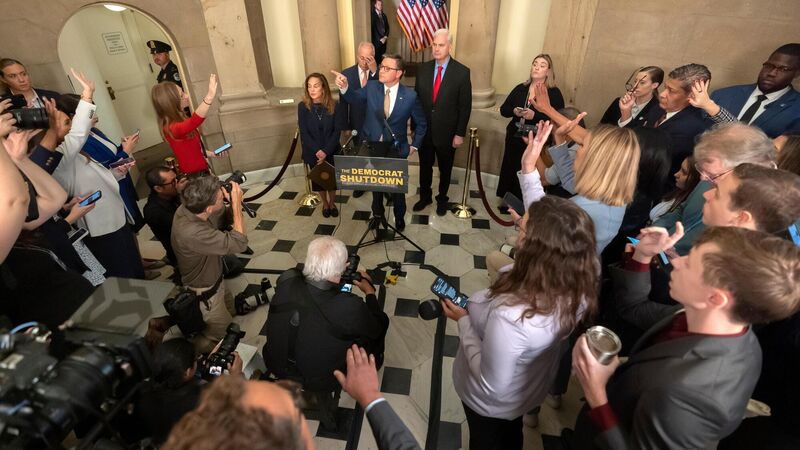David McNamara: US shutdown adds to macro uncertainty ahead of Budget

House speaker Mike Johnson, with House Republican Caucus Chair Rep. Lisa McClain, R-Mich., House Majority Leader Rep. Steve Scalise, R-La., and House Majority Whip Rep. Tom Emmer, R-Min at a press conference in Johnson's office in the Capitol, as the US faces a shutdown. Picture: AP Photo/Mark Schiefelbein
Amid a fresh US Government shutdown, markets are in the dark on major macro releases, as US payroll jobs, due to be published last Friday, were delayed. The keenly awaited September number follows a series of weak prints for the US jobs markets over the summer months, which spurred the Fed’s first interest cut in 2025, just last month.
With the release now delayed, attention turns to the slew of other private sector surveys, with most suggesting the US labour market remained weak in September. The ADP employment survey showed an unexpected 32,000 fall in jobs in September, while the ISM manufacturing survey signalled that firms have continued to shed workforce numbers during the month.











